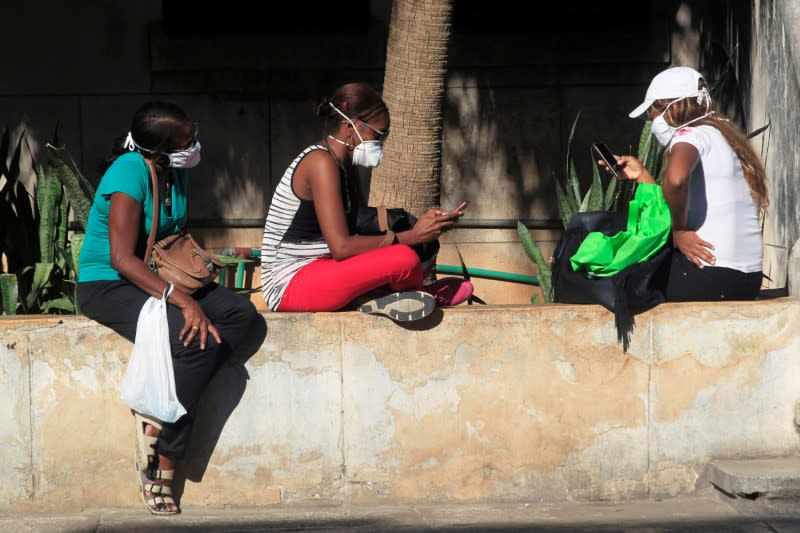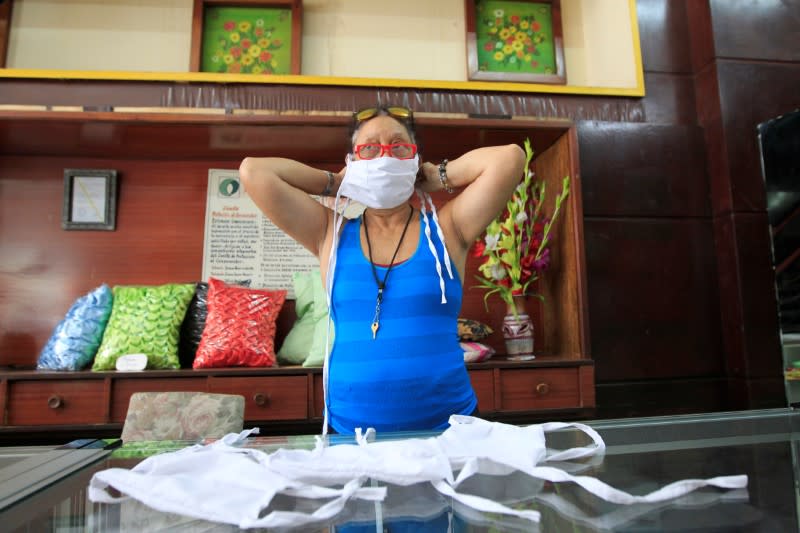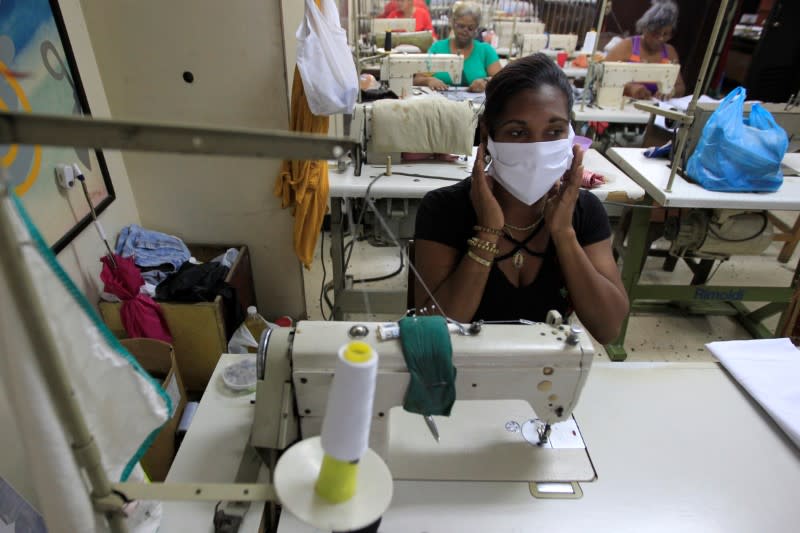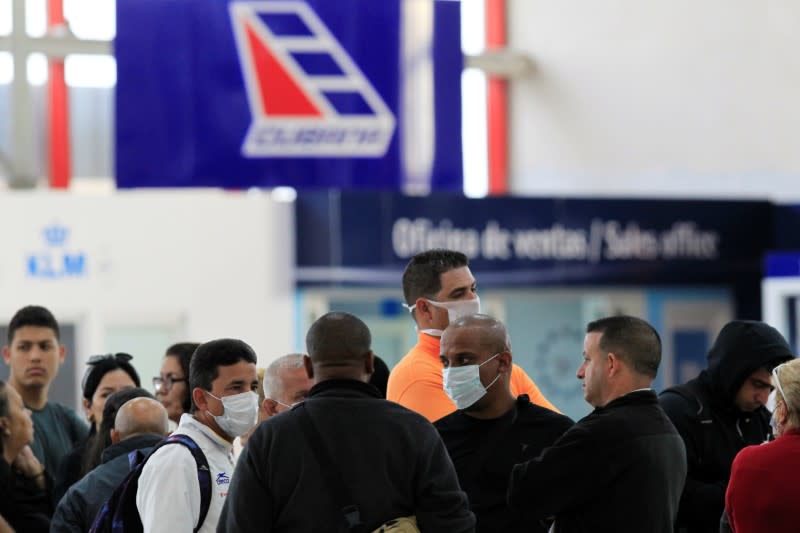'Keep calm and carry on': Cuba warns virus panic bad for immune system
By Sarah Marsh
HAVANA (Reuters) - In the face of global panic over the coronavirus pandemic, Cuba's Communist government has urged calm, saying stress weakens the immune system, and has taken more time than its Caribbean neighbors to introduce drastic measures as it touts the strength of its health system.
The government has suspended large cultural and sporting events, and on Friday said it would start barring entry to tourists. But so far it has steered clear of ordering workers and students to remain at home.
Cuba is renowned for its preparedness in advance of natural disasters such as epidemics and for its medical prowess. It sends its doctors to health crises around the world, including the Ebola outbreak in West Africa in 2014-2016.
With the world's highest ratios of physicians to population, according to the World Bank, Cuba has tens of thousands of doctors as well as medicine students going door-to-door to monitor local communities.
"Closing the centers for work and teaching create a situation of tension and stress that is known to diminish the body's immune system," the Health Ministry's epidemiology chief, Francisco Durán García, said on state-run TV this week.
President Miguel Diaz-Canel, in a televised roundtable on Friday, said: "There must be neither panic nor overconfidence."
Cuban officials have said the island's hot climate could slow propagation of the virus - although the theory remains unproven - and a state-run tourism agency even promoted the island as a safe destination at the start of the crisis.
Cuba has also boasted that it produces a drug that helped curb the coronavirus outbreak in China, although some experts doubted whether it was effective as a mass treatment.
Cuba has the "manpower, the drugs, and a proven and effective approach to face health challenges," the Foreign Ministry's general director for U.S. affairs, Carlos Fernandez de Cossio, tweeted.
Many Cubans trust authorities' assurances that they have the situation under control, in a country where the state has a monopoly of mass media. But some are concerned about the decision to keep schools and workplaces open.
Others criticized the government for not barring entry to tourists earlier. Increased internet access on the island has generated more concern as citizens have been able to evaluate other countries' approaches.
Cuba also has the oldest population in Latin America, and the elderly tend to be more vulnerable because they have weaker immune systems.
On Wednesday, authorities reported the first death from the coronavirus in Cuba, a 61-year-old Italian tourist. The number of cases has steadily risen over the past week to 21 confirmed and 716 hospitalized on suspicion of having the virus.
"It will be difficult because we live from tourism, but health comes first," said Luis Rodriguez, 48, who drives a "coco taxi" - a three-wheeled scooter under an egg-shaped booth - in Havana.
NO CURFEW, CLOSURES YET
While life in Havana has continued much as normal, some private business owners have chosen to suspend operations.
"We are closing next week because we cannot be a place for the virus to propagate," said Nelson Rodriguez Tamayo, owner of a buzzing cafe in the colonial Old Havana. "We are thinking about doing delivery".
Others are keeping their children at home.
Diaz-Canel called on Cubans on Friday to start practicing social distancing, to avoid crowds and trips on public transport at peak hours, and cancel social outings.
"Something very difficult due to Cubans' nature, but very necessary, is the elimination of effusive greetings," he said. "No kisses or hugs and greetings at a prudent distance until the epidemic passes by."
The president said Cuba could take "more severe" measures in coming days or even hours, depending on the spread of the virus.
He also urged Cubans to practice better hygiene.
But many Cubans worry about the lack of protective equipment and hygiene products in a country under U.S. sanctions, which faces shortages of many basic goods.
Adequate hand-washing is also problematic for many who face sporadic outages of running water, and Cuba is recommending that citizens make their own face masks.
Shortages mean Cubans have to typically spend hours in queues when they go shopping, complicating social distancing.
"There is no way to shop online here, so if I don't queue up how do I get by?" asked Eddy Zamora, 36, queuing outside a supermarket. "And I don't have the money to stock up."
(Reporting by Sarah Marsh; Additional reporting by Nelson Acosta; Editing by David Gregorio and Leslie Adler)

 Yahoo News
Yahoo News 







